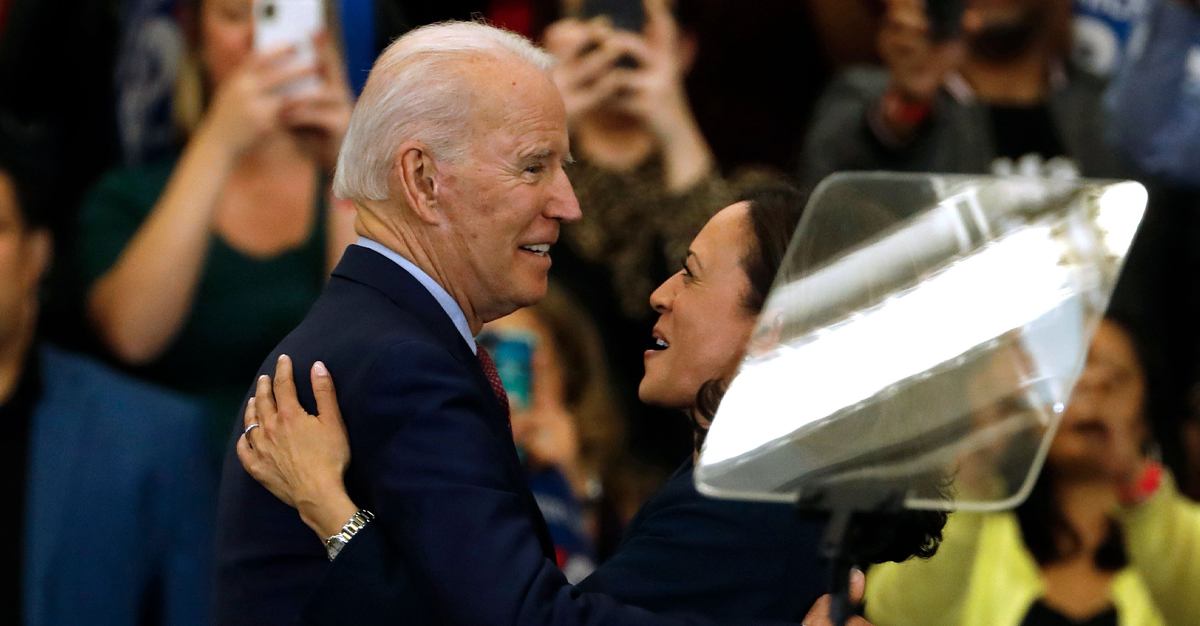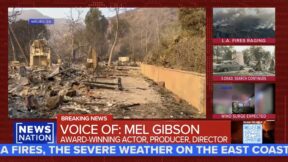
Jeff Kowalsky/AFP, Getty
As many as a dozen prominent Democratic women, from Sen. Kamala Harris (CA) to Rep. Val Demings (FL), are being “vetted” by advisors to former vice president Joe Biden, as the presumptive Democratic nominee chooses his running mate.
The vetting process has historically been private – handled by legions of white-collar lawyers and forensic accountants accustomed to working in near-total secrecy.
This year, the process has become public – and messy.
Supporters of various potential veeps are lobbying the Biden team on Twitter, and leaking to the press details of private conversations with the vetting committee.
The Trump campaign, the America Rising opposition research Super PAC, and possibly even the contenders themselves (or their operatives) have dumped opposition research on potential vice presidents.
Rep. Karen Bass (D-CA) has walked back effusive comments about the Church of Scientology after video surfaced of her remarks at a newly renovated church in 2001. Sen. Marco Rubio (R-FL), in a call arranged by the Trump campaign, called Bass a “Castro sympathizer” for her statements about the Cuban dictator Fidel Castro, such as calling his death in 2016 “a great loss to the people of Cuba.”
A confidential $35,000 employment settlement reached a decade ago between the office of then-Attorney General of California Kamala Harris and an aide has surfaced in the press. Harris’ detractors have also circulated screenshots from campaign documents showing $8,000 in campaign contributions to Harris from Donald Trump and his daughter Ivanka Trump in 2011-2014.
Former Democratic Senator Joe Lieberman described the vetting process as “kind of like having a colonoscopy without anesthesia.”
The vetting process is indeed intrusive, with a potential after-effect of nausea, thanks largely to Geraldine Ferraro, who was Walter Mondale’s running mate in 1984 on the Democratic ticket, and Sarah Palin, who joined the late GOP Sen. John McCain in his quest for the presidency in 2008.
When former Vice President Mondale announced that Rep. Ferraro would be his running mate, the reaction was positive – for about a week. Then reports started surfacing, in the New York Times and other media outlets, about Ferraro’s finances and those of her husband.
When a team of accountants was assigned by the Mondale committee to help Ferraro prepare her financial disclosure forms, as required by federal election law, they discovered certain irregularities, including a “tax error,” which Ferraro blamed on her personal accountant, regarding the sale of property in 1978. Ferraro and wrote checks to the IRS for $53,459 to cover back taxes, plus interest. Another $17,000 had to be paid to the State of New York.
Since then, a potential vice president must disclose to the vetting team not only his or her tax returns, but those of a spouse and other close relatives.
Republican operatives have been pointing fingers at each other for more than a decade over the vetting of Sarah Palin. McCain lawyer A.B. Culvahouse and his team packed eight weeks of research into one. According to reports at the time, the vetting did not discover:
• Palin (like virtually all Alaska politicians) supported the infamous “Bridge to Nowhere” – a controversial $400 million bridge, eventually cancelled, that would have connected the small city of Ketchikan to its airport on nearby Gravina Island;
• She took taxpayer-funded trips to Washington, DC to lobby for congressional earmarks for her town of Wasilla; and
• She asked a TV interviewer in the summer of 2008, prior to her selection, “What is it exactly that the VP does every day?”
If the vetting of Biden’s running mate is thorough, and if the nominee’s roll-out goes well, she will be an asset to the Democratic ticket and may take the oath of office on the West Front of the U.S. Capitol next January.
If the vetting has been inadequate, she (and the Biden campaign) will take a beating in the press and in the books that will be written about this historic election.
In the meantime, potential running mates – and the American public — only have to endure another week of a very public colonoscopy.
Joseph Rodota is an author and political strategist based in California, and is the host of OPPO FILE, a podcast about the history and practice of opposition research.
This is an opinion piece. The views expressed in this article are those of just the author.






